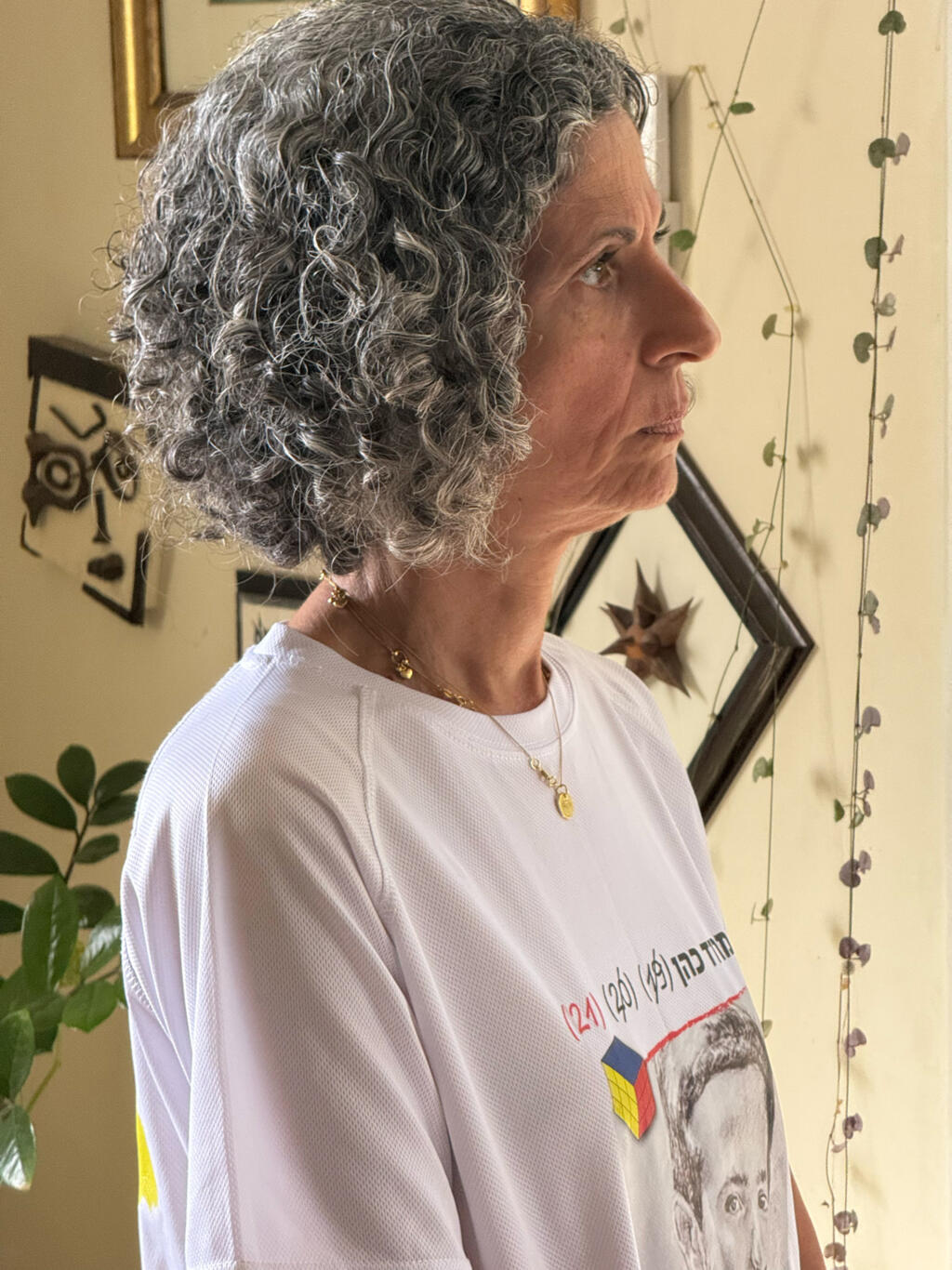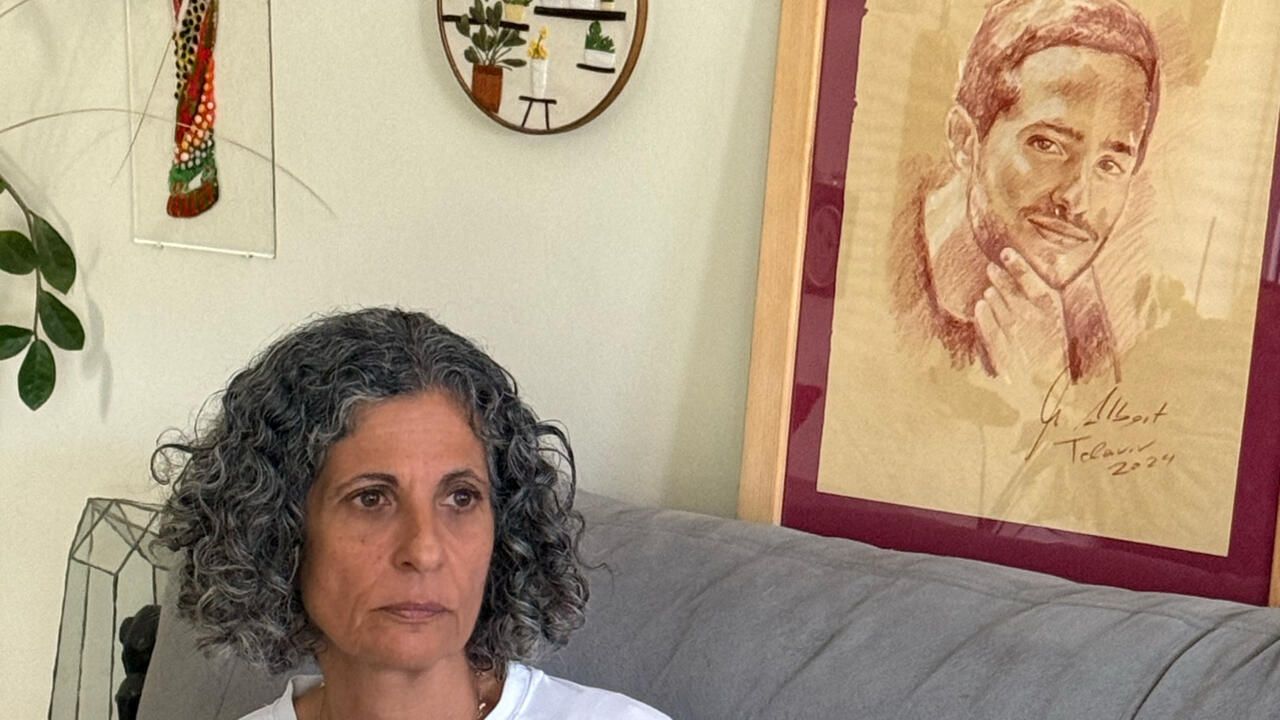Nearly 50 people remain hostages of Hamas since being kidnapped in the group’s attacks on Israel in October 2023. With an agreement to free the captives tantalisingly close, RFI spoke to the mother of one of the captives, Viki Cohen, about her nearly two-year crusade to bring her son home.
Cohen’s son Nimrod was 19 years old and performing his military service when he was kidnapped from an Israeli tank on 7 October 2023.
His mother has become a full-time advocate for him and the other 47 hostages still in Gaza. Her priority is convincing the Israeli authorities to reach a peace agreement and allow the captives to return home.
Speaking to RFI before Hamas said it was prepared to release the hostages under a ceasefire plan drawn up by US President Donald Trump, Cohen described why she believes it’s time for Israel to end the war.
RFI: There is talk of a US peace plan backed by Donald Trump. Are you optimistic?
Vicky Cohen: Nimrod could already be home if our government had agreed to respect the second phase of the February agreement. But it decided to restart the war. It has been almost two years now and there are still 48 hostages. My son Nimrod is one of them.
We hope that with international pressure, the time has come to end the war. It’s time for our government to agree. Our prime minister must decide whether to listen to what Donald Trump is telling him to do or to follow the extremist members of his coalition and continue to torpedo the agreement. Eighty-four percent of the Israeli population wants the war to end and the hostages to come home.
War isn’t good for anyone. It has caused losses on both sides. It’s not right. It’s better to resolve problems through diplomacy. I think it’s time for this to end. This war serves no purpose.
‘Recognition brings obligation’: How declaring genocide could reshape war in Gaza
How are the authorities supporting you?
Members of the government? None of them contact us! We are the ones who constantly ask to meet with them.
There is a department dedicated to relations with the families of the hostages and people killed. They occasionally send us messages on WhatsApp. The last one arrived when the prime minister decided to attack the Hamas leaders in Doha. So we received a message saying that the prime minister had decided on this strike “because the Hamas leaders are the ones refusing to reach an agreement”. We don’t believe it.
What’s more, I was angry, frustrated, upset, worried. It wasn’t a personal message, just a WhatsApp. It’s a very cold way to communicate.
What are the last images you have of your son?
We received a video in March. It was released by Hamas and we saw Nimrod. His face wasn’t visible, but we recognised him by the tattoo on his arm. We knew immediately that it was him, even before the intelligence services contacted us.
How did you feel at that moment?
It was the first visual sign of life we had received, so I was very excited: to see him standing, to see him moving. I was also very worried about him. I don’t know what his living conditions are like, I just know that he is alive. That’s the only information we have.
Israeli ambassador slams French recognition of Palestine as ‘historic mistake’ on RFI
Where do you stand politically? Before October 7 2023, did you support Prime Minister Benjamin Netanyahu?
I didn’t support him before, so I don’t support him now. But today it’s different because his decisions have a direct impact on what is most precious to me: my son.
I miss him so much. We will do everything we can to bring him back. I hope he knows that. I will do everything. I will protest, persuade, talk to anyone who can help. I will do everything.
 Viki Cohen has spent almost three years campaigning for the return of her son Nimrod. © Frédérique Misslin / RFI
Viki Cohen has spent almost three years campaigning for the return of her son Nimrod. © Frédérique Misslin / RFI
You know, a large part of the population wants the hostages back, but another part thinks it is acceptable to keep the hostages captive until Hamas is defeated. They think it is acceptable to pay the price of those who will be killed. But the majority knows that without the hostages at home, we will have no future as a society sustained by values.
Some sanctify land over life. The most extremist members of the coalition, such as [Minister of National Security] Itamar Ben Gvir, dream of conquering Gaza and rebuilding settlements there. It’s a messianic dream. Is it normal for people to be killed for this dream?
My son is a soldier. He was sent to the border by the government, by the army. He wasn’t there to have fun. He was only protecting. He wasn’t attacking. He was protecting the border and the citizens who live in the kibbutzim near the border. The government has an obligation to bring him home.
This interview was adapted from the original in French by RFI’s Frédérique Misslin.

